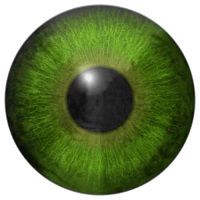Article
Personality Traits Linked to Uveitis
Author(s):
Personality traits such as being calm and organized are associated with types of uveitis, researchers in India found.

Personality traits, such as being calm and organized, are associated with types of uveitis, according to a study conducted in India.
The cause and progression of uevitis, like many immunological diseases, remains somewhat of a riddle, the authors explained. Their aim was to see whether the interaction between the brain and the immune system was a place to look for a solution.
Their hypothesis was that “Personality traits often dictate how individuals react to stress can act either as a protective factor or a catalyst to developing psychological or physical symptoms,” Ankush Kawali, MD, and his co-authors wrote in their article published online October 6 in the Journal of Ophthalmic Inflammation and Infection.
While some other studies have associated a positive personality as being protective against uveitis, the work of Kawali, a consultant in the uveitis and ocular immunology department at Narayana Nethralaya, an eye hospital in Banglore, and his colleagues did not.
Fifty-six members of their uveitis group had positive traits such as being social, calm, organized, accommodative, and inquisitive. In contrast 62 members of the healthy group had negative traits such as being reserved, limbic, unstructured, ego-centric, and non-curious.
What initially may have been more surprising was that being calm or being organized was associated with two types of uveitis.
“Organized personality, an element of orderliness, which was statistically significant in uveitis patients, describes a person as ‘more controlled than random, more logical than abstract, more grounded than in the clouds, over-achiever, motivated, mature, hard worker and punctual.’ This trait has many positive attributes but [people with it] are also prone to anxiety and stress when circumstances are perceived as not under control,” the co-authors explained.
“The positive attributes of being controlled and orderly may have good prognostic effect on treatment adherence measures while the anxiety generated by a uveitis relapse may be compounded by feelings of losing control and descending into chaos,” they added.
The statistically significant calmness in the uveitis group also was associated with the presence of HLA-B27, an antigen on chromosome 6 and found in patients with other immune diseases such as ankylosing spondylitis.
The study suggested that CBT (cognitive behavioral therapy) might change disease activity. “One can hypothesize that, if personality can be altered, it could serve as an adjunctive therapeutic option to the standard of care treatment especially when uveitis is not under control with maximum possible medications.”
The authors noted that their study was limited by its small size, the lack of an interview by a psychologist, and the absence of psychotherapeutic interventions. Nonetheless, it concluded that its findings warrant “larger studies to further understand the complex mechanism of psycho-immunology and uveitis, as this may contribute to novel therapeutic approaches to the field of uveitis.”
Uveitis is an inflammatory eye disease that can be associated with systemic illness such as arthritis, Crohn’s Disease, and multiple sclerosis. According to Ocular Immunology and Uveitis Foundation, it affects 2.4 million people worldwide and is the third leading cause of blindness. Uveitis appears less frequently in the US where there are about 43,000 new cases a year and an incidence of about 15 cases per 100,000 people, the foundation’s data indicates.
Related Coverage:
Psychological Symptoms Impact Rheumatoid Arthritis Disease Activity





